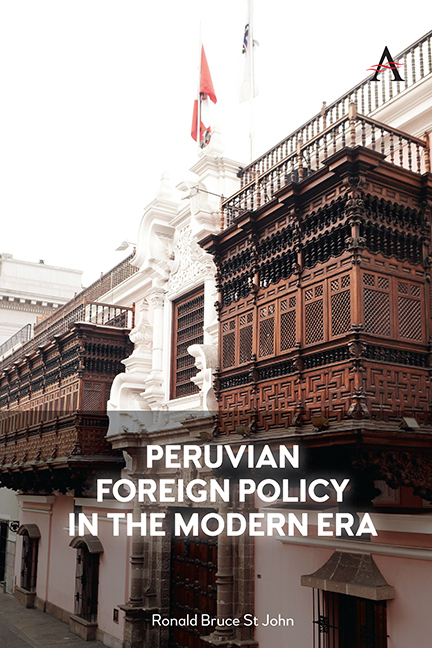Book contents
- Frontmatter
- Dedication
- Contents
- List of Figures
- Acknowledgments
- Abbreviations
- Map
- 1 Introduction
- 2 Alberto Kenya Fujimori, 1990–2000 and Valentín Paniagua Corazao, 2000–2001
- 3 Alejandro Celestino Toledo Manrique, 2001–2006
- 4 Alan García Pérez, 2006–2011
- 5 Ollanta Humala Tasso, 2011–2016
- 6 Pedro-Pablo Kuczynski Godard to Francisco Rafael Sagasti Hochhausler, 2016–2021
- 7 José Pedro Castillo Terrones To Dina Ercilia Boluarte Zegarra, 2021–2023
- 8 Conclusions
- Works Cited
- Index
3 - Alejandro Celestino Toledo Manrique, 2001–2006
Published online by Cambridge University Press: 28 February 2024
- Frontmatter
- Dedication
- Contents
- List of Figures
- Acknowledgments
- Abbreviations
- Map
- 1 Introduction
- 2 Alberto Kenya Fujimori, 1990–2000 and Valentín Paniagua Corazao, 2000–2001
- 3 Alejandro Celestino Toledo Manrique, 2001–2006
- 4 Alan García Pérez, 2006–2011
- 5 Ollanta Humala Tasso, 2011–2016
- 6 Pedro-Pablo Kuczynski Godard to Francisco Rafael Sagasti Hochhausler, 2016–2021
- 7 José Pedro Castillo Terrones To Dina Ercilia Boluarte Zegarra, 2021–2023
- 8 Conclusions
- Works Cited
- Index
Summary
Alejandro Toledo rose from humble beginnings in the north of Peru to earn an undergraduate degree at the University of San Francisco and graduate degrees at Stanford University. In the 2001 presidential race, most of the candidates, including Toledo, were centrist, pro-market, and emphatic about their democratic credentials. Stressing his indigenous roots and rise from poverty, Toledo occupied the center ground between former president Alan García Pérez, a center-left populist, and Lourdes Flores Nano, a center-right conservative. Toledo defeated García in the second round with 53.08 percent of the vote (St John 2010, 27–31, 37–38).
Unlike its predecessors, the Toledo administration articulated an interrelated set of foreign policy goals at the beginning of its term in office and then pursued them over the next five years. First, it continued the long-time Peruvian emphasis on expanded integration with subregional, regional, and international organizations. Second, it emphasized better relations with the industrialized states of the world as well as the major powers in the Asia–Pacific region. Third, it promoted democracy and human rights, often tying improvement in these areas to a fourth policy goal, the struggle against poverty. Fifth, it advocated reduced arms spending throughout the region, arguing the money would be better spent on education, health care, and poverty reduction. Sixth, it worked to improve diplomatic and commercial relations with neighboring states, encouraging economic development in the borderlands. Seventh and eighth, it called for the Ministry of Foreign Affairs to promote the domestic economy abroad and to improve services to the more than two million Peruvians living overseas. Finally, the Toledo administration encouraged ongoing reforms at the Ministry of Foreign Affairs (García-Sayán Larrabure 2002, 18–27; Toledo Manrique, interview with author, 12 September 2008).
Subregional and Regional Integration
In his 2001 inaugural address, President Toledo promised a foreign policy that would connect Peru with the outside world, emphasizing the need to expand relations with subregional, regional, and international organizations. He called for CAN to be relaunched to accelerate regional integration, and he urged member states to adopt a multilateral approach to arms control, using the savings achieved to expand social welfare programs (Toledo Manrique 2001).
- Type
- Chapter
- Information
- Peruvian Foreign Policy in the Modern Era , pp. 19 - 30Publisher: Anthem PressPrint publication year: 2023



